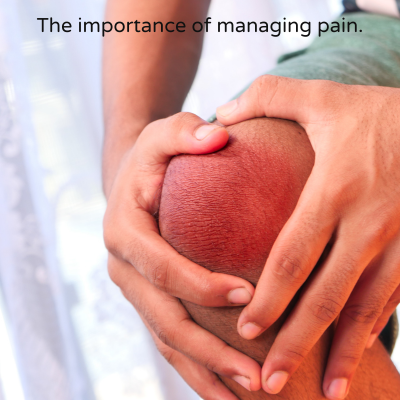The Importance of Managing Pain

Pain is an all too familiar problem that most of us have had to deal with at some point. It serves an important purpose – to tell us something is wrong, be it an injury or an internal issue that needs attention. In serious illnesses, pain can be prominent, persistent, and prevalent symptom. It is draining physically, psychologically, and emotionally. Intense pain that is not treated overshadows everything else. That’s why proper pain management is vital to palliative care.
The Consequences of Untreated Pain
It is estimated that approximately 68 million people experience serious health-related suffering globally, of which 7-10 million are in India alone, with less than 4% of them having access to pain relief or palliative care. Left untreated, it severely impacts their quality of life and recovery. Furthermore, the Joint Commission on Accreditation of Healthcare Organizations noted that pain can have adverse physiological and psychological effects when unrelieved. To put it simply, ignoring proper pain management, apart from the intense discomfort, could potentially worsen the illness. It can also leave patients vulnerable to anxiety, depression, and other mental health issues, as well as compromising the quality of sleep
The fear of addictions, substance misuse, and side effects hinder access to opioids for pain relief. This, however, doesn’t justify the lack of access to pain relief for over 80% of the global population.
Managing Pain with Palliative Care
Effectively managing pain and helping improve quality of life is one of the primary goals of palliative care. Most teams will perform regular pain assessments and work with a patient’s primary physician or medical team to create the best plan to treat that pain. This plan includes nonpharmacological treatments and assistance with dealing with the psychological and emotional aspects of persistent pain as well. Palliative care teams also work with caregivers, educating them on managing medication and relieving techniques like massages or hot/cold compresses that can be administered at home and whether they are advisable or not.
Don’t Ignore Pain
Pain is, unfortunately, a persistent symptom or consequence of cancer, ALS and other serious or long-term illnesses, and there’s no escaping it. However, it can be managed effectively with the proper care and techniques, preventing it from being debilitating and compromising quality of life. It is, therefore, essential not to ignore it and to encourage those struggling with pain to be honest about it and how it is impacting them. This allows physicians and palliative care teams to work out the best way to manage it and help patients live the best life possible.






